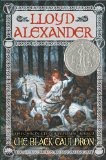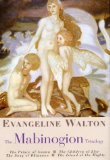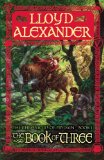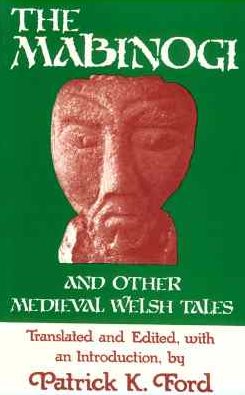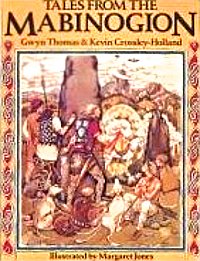
Recently Rated:
Stats
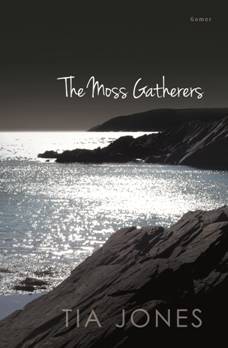 Juggling the lambing season with the launch of her new novel, Tia Jones is a busy hill farmer and mother of four from Montgomeryshire.
Juggling the lambing season with the launch of her new novel, Tia Jones is a busy hill farmer and mother of four from Montgomeryshire.
Set in two rural communities on each side of the Irish Sea, The Moss Gatherers is Tia Joness long-awaited sequel to On Open Ground published by Gomer in 2008.
Shaped by marginal land between sea and mountain, history and folklore still persist in the lives of Richard, Bethan and Simon. Bethan seems a long way away from T Coch, the family farm where she grew up, and where her eldest brother, Richard, continues to toil. She has been swept across the sea to Ireland by her exciting marriage to Malcolm OConnor, the race-horse trainer who is as full of intrigue as he is of charm.
Unbeknown to Bethan, however, there is an insult to be avenged and when she is visited by Simon, a desperate series of events is set in motion and, as so often before in the real and imagined past, it is the Irish Sea itself which will have the final say. And all the while, the moss gatherers are at work
It was the authors grandmother who first alerted her to the importance of moss gathering as she had set up regular moss collections for the British Red Cross. As the novel explains, the Red Cross worked with the Department of Health during the Second World War to produce dressings that were made from moss and this eventually led to a substantial saving in the use of cotton wool.
Tia Jones lives and works with her husband on their organic hill farm in Montgomeryshire. She has written for television and radio, and regularly contributes to newspapers and popular magazines as a freelance writer.
The Moss Gatherers is available from
all good bookshops and online retailers.
For more information, please visit www.gomer.co.uk
|
'The Black Cauldron' could have taken me by surprise. Why you ask, well our old friend Walt Disney made a version of this book. Therefore, if you have seen the movie like the Disney movie Tinker Bell its not. I found Book 2 to be full of wonder and excitement beyond anything Mickey Mouse could deliver. Perhaps one of the most inspiring of all five books, 'The Black Cauldron' tests the companions (Taran, Eilonwy, Gurgi, and Fflewddur). Not only was their courage tested, but also their true virtue, for Taran and his companions were, given more than once, the chance to become evil doers. In the end, as Alexander puts it, you cannot always judge good and evil 'unmixed,' sometimes you must remember people for what they once were, and others for what they became. This is a retelling of the Mabinogions Cauldron of Rebirth bringing to the young at heart a vivid way to introduce the Mabinogi. Paperback: 208 pages Rating: 5 Stars Publisher: Henry Holt and Co. BYR Paperbacks (May 16, 2006) Review by Bill Tillman |
| Fantastic telling of the four branches of the Mabinogion. One truly needs to read several versions before being comfortable with the four branches. This is my ultimate favorite among all books Mabinogi. In the forward Betty Ballantine tells the story of Evangeline Walton born in 1907 in Indianapolis Indiana as a blue baby and never enjoying good health. All her life she had to cope with silver nitrate treatments which left her with a blue complexion. She was thus home educated and was very much a recluse. In this atmosphere, she began a life long love affair with books, her early favorite authors being Rider Haggard, Edgar Rice Burroughs, L. Frank Baum, and Lord Dunsany. The worlds of fantasy, love and adventure were also her world. A love of ancient and medieval history as well as the high poets formed her. Along with these factors, writing became a lifelong habit and passion. Her direction was toward magic and fantasy and when mixed with her burgeoning imagination this led her to the Mabinogion with its heroic myths of ancient Welsh lore. Therefore, her ambition focused on this rich body of literature. The myths, with a matter-of-fact acceptance of magic in the everyday lives of humankind, together with the fierce, tempestuous stories of the early Cymru, the titanic imagery, the blending of gods and men - proved the lure of a lifetime. In 1936, Walton published the Forth Branch of the Mabinogion with a title of 'The Virgin and the Swine.' This in the Depression went largely unnoticed. In the early 1970's Ballantine Books found a copy of 'The Virgin and the Swine. .Having started a new line of adult fantasy books, they were more than eager to republish this book. The Library of Congress did not have an address for the author, the publisher was long defunct. Ballantine posted ads for any information about the author in hundreds of publications. Calling the republished book The Island of the Mighty it was already in its print run when the Library of Congress informed them that the copyright had been renewed but they still had no address. A publisher's nightmare! Then another author found a twenty-year-old address for Walton. She was living in Tucson Arizona, and was pleased to see her book back in print. She asked if Ballantine would like the manuscripts for the other three branches. Checking and revising her early work, Prince of Annwn, The Children of Llyr, and the Song of Rhiannon The Mabinogion Tetralogy was published to the delight of dedicated fans of the Ballantine adult fantasy series. Recognition of her immense writing talents followed rapidly in the mainstream media. The Saturday Review of Literature wrote of Walton: Evangeline Walton stands with T. H. White and C. S. Lewis as not only the best fantasies of the twentieth century. . . they are great works of fiction. Walton succeeds in creating an imaginary world that we believe actually existed [their italics] in this worlds history. So this is the one work you cannot live without if you love the tales of the Mabinogi. Paperback: 720 pages Publisher: Overlook TP (December 31, 2003) Rating: 5 Stars Review by Bill Tillman |
|
The tale of Taran, assistant pig keeper, has been entertaining young readers for generations. Set in the mythical land of Prydain (which bears a more than passing resemblance to Wales), Lloyd Alexander's book draws together the elements of the hero's journey from unformed boy to courageous young man. Taran grumbles with frustration at home in the hamlet Caer Dallben; he yearns to go into battle like his hero, Prince Gwydion. Before the story is over, he has met his hero and fought the evil leader who threatens the peace of Prydain: the Horned King. What brings the tale of Taran to life is Alexander's skillful use of humor, and the way he personalizes the mythology he has so clearly studied. Taran isn't a stick figure; in fact, the author makes a point of mocking him just at the moments when he's acting the most highhanded and heroic. When he and the young girl Eilonwy flee the castle of the wicked queen Achren, Taran emotes, "'Spiral Castle has brought me only grief; I have no wish to see it again.' 'What has it brought the rest of us?' Eilonway asked. 'You make it sound as though we were just sitting around having a splendid time while you moan and take on.'" By the end, Alexander has spun a rousing hero's tale and created a compelling coming-of-age story. Readers will sigh with relief when they realize The Book of Three is only the first of the chronicles of Prydain. Paperback: 190 pages Rating: 5 Stars Publisher: Henry Holt and Co. BYR Paperbacks (May 16, 2006) Review by Bill Tillman |
| Not all Mabinogion's are created equal. This version has not only the four branches, but the Four Independent Tales, The Three Romances. Result? None are done as well as could be leaving much to be desired. Redemption, that it is in clear English and readable. Celtic mythology, Arthurian romance, and an intriguing interpretation of British history--these are just some of the themes embraced by the anonymous authors of the eleven tales that make up the Welsh medieval masterpiece known as the Mabinogion . Set in dual realms of the forests and valleys of Wales and the shadowy otherworld, the tales are filled by a dreamlike atmosphere. They tell of Gwydion the shape-shifter, who can create a woman out of flowers; of Math the magician whose feet must lie in the lap of a virgin; of hanging a pregnant mouse and hunting a magical boar. Dragons, witches, and giants live alongside kings and heroes, and quests of honor, revenge, and love are set against the backdrop of a country struggling to retain its independence. King Arthur's court provides the backdrop to tales such as "How Culhwch Won Olwen", in which a young man must complete many tasks before he can marry a giant's daughter. The work is divided into 11 disparate tales. Only the four of the first sections are explicitly "Branches of the Mabinogi," or stories of a youth. The youth is, according to a tradition followed by Gwyn Jones in her introduction, is Pryderi, the son of a Welsh King, Pwyll. Paperback: 272 pages Rating: 3 & a half Stars. Review by Bill Tillman |
| Patrick Ford has given us a college level version of the Mabinogion with a great many notes explaining the background and hard parts of the translation. A very worthwhile version to have in your library. First, "The Four Branches of the Mabinogi," from which the collective title was derived, consisting of "Pwyll, Prince of Dyved," Branwen Daughter of Llyr," "Manawydan Son of Llyr," and "Math Son of Mathonwy." These begin with a story about the conception and birth of Pwyll's son, Pryderi, whose death is one of the early events in the "Fourth Branch," and concern a variety of heroes, and what are clearly rationalized gods. (Evangeline Walton turned each of the "Four Branches" into a novel; and other writers have done versions of one or another of them.) Second, there are two "native tales," "The Dream of Maxen Wledig" and "The Story of Lludd and Lleuelys," about Roman ("historical") and pre-Roman ("mythical") Britain as imagined by the medieval Welsh. The 'Lludd" text, as we have it, actually belongs to the "Chronicle" tradition launched by Geoffrey of Monmouth's supposed translation from an "ancient British book." (Which, if any part of it ever had any existence, was NOT the "Mabinogion.") The name of Lludd seems to be Welsh variant of a Celtic divine name, "Nuada" in Irish, "Nodens" in old British inscriptions, and "Nudd" in other Welsh sources; the variation seems to be due to assimilation to his epithet, Llaw Eraint, "Silver Hand," which is explained in the Irish tale of how the physician of the Gods made new hand for Nuada Argatlam." (H.P. Lovecraft picked up "Nodens" for the Cthulhu Mythos, a use which is unrelated; but Tolkien, whose hero Beren also lost a hand, actually wrote an early article on the Nodens inscriptions, and the apparent offerings of metal hands.) He may be behind King Lud, the supposed eponym of London. As Ford points out, Lleuellys, usually given as Llevellys, and also modernized as Llefellys, clearly should be read as Lleu-ellys, and recognized as a version of the god Lugh: the name Lleu is also used for a character in the Fourth Branch of the Mabinogi. "Maxen," in which a Roman Emperor seeks as his wife a princess seen in a dream, seems to reflect an even more garbled version of a story known to Geoffrey, compounding several real people, including Helen, the mother of the Emperor Constantine. She was, in a medieval confusion compounding an honest mistake with local patriotism, believed to be British, and identified with "Elen of the Hosts." Ford drops this, as it seems to contain a rather high proportion of medieval hagiography and romance, and a very low proportion of archaic Welsh tradition. Third are two Arthurian stories in native Welsh mode. "Culhwch and Olwen," is an elaborate quest, dragging in, at least by name, most of the gods and heroes traceable in Welsh material, and some of their Irish cousins into the bargain, mostly as part of Arthur's court. "The Dream of Rhonabwy" is a visionary encounter with Arthur and his warriors (and anything else I could say would probably be controversial); a fascinating text, which, after a very grittily realistic opening, almost boasts of its authentically dreamlike obscurity. It breaks off in a manner most modern readers will find unsatisfactory -- and its arbitrary nature may have been part of the point. Ford does not include it; a pity, but it is probably the least readable part of the collection. Fourthly however Ford does not translate the three "Romances," "Owain" (otherwise known as "The Lady of the Fountain"), "Peredur son of Evrawc," and "Gereint the Son of Erbin," the first and last of which are clearly versions of Chretien de Troyes' Old French Arthurian Romances, "Yvain" and "Erec," while the second is related in a more complex manner to his unfinished and problematic "Perceval le Gallois." These seem to illustrate Celtic materials going out into wider European society, and then flowing back into Wales to enrich (and confuse) the native heroic and mythic tradition with ideas of chivalry. The version of "Taliesin," based, as noted earlier, on the text Ford had re-edited from manuscripts, is restored to its two-story version, as "The Tale of Gwion Bach" and "The Tale of Taliesin," and includes reliable versions of the poems attributed to the variously-reborn hero. Again, there was a real Taliesin, a dark-age Bard, according to Welsh tradition; but these poems, like the stories, are pretty much independent of anything he may have actually composed. But they *may* reflect some very archaic ideas about the magical nature of poetry, which were old when the real Taliesin was alive. Ford included as an appendix a translation of the notoriously difficult "Cad Goddeu," or "Battle of the Trees." Ford doesn't claim to understand its "real meaning," if any, only what it actually says, and it is very nice to have it. Paperback: 205 pages Rating: 4 Stars Review by Bill Tillman
|
|
This could be called an illustrated Readers Digest of the Mabinogion. At 88 pages including illustrations, which are excellent, this is a small work. Some branches of the Mabinogion are done well if briefly, others are lacking. This collection of medieval Welsh tales was selected from the Mabinogion myth cycle. They serve as great examples of the old stories of the Celtic Gods who lived on the Island of the Mighty before the Romans and the Anglo-Saxons came. These gods were pushed into mythic status by the coming of Christianity and they live on in these tales. With vibrant Welsh names like Branwen, Bendigeidfran, and Cigfa, these male and female heroes of yesteryear encounter beautiful enchantresses, powerful kings of the underworld, and the magical cauldron of rebirth. These are powerful tales of an ancient time when giants roamed the earth and magic was afoot. They rely on familiar folk tale archetypes, but have distinctly Celtic elements that make them unique. The book was originally written for adults, and it includes stunning illustrations that include an artistically rendered nude image of a woman, but the tales themselves are accessible to readers and listeners of all ages. This book would be a good addition to any folk tale collection. Purchase here:- Tales From The Mabinogion Paperback: 88 pages Rating: 5 Stars Review by Bill Tillman
|
| Jeff Jones is a former Welsh amateur footballer; a Boys Clubs of Wales international in 1979. The same year he scored a hat-trick in the final of that seasons Welsh Youth cup final. During a long and undistinguished football career in the game he played in every position on the pitch and has occupied every position off the field of play from club chairman to programme editor. Park Life The Best Bits is a collection of the funniest articles from the RTB Ebbw Vale FC match programme edited by Jones, and despite the club being so far down the football pyramid they were almost on the Sphinx! Park Life proved an award winning match programme completing a hat-trick of Gwent County Programme of the year wins and was also voted best in its category (level 3 and below) 3 years running in the Welsh Football Magazines Programme of the year wards. Three times in its 6 year history the programme was named in the top 5 in Wales finishing 3rd Twice this in the overhaul category, beating programmes printed professionally by clubs playing at the highest levels of Welsh football. Park Life ran from 2003-2009 though Jones continues to write humorous articles in the Welsh Football Magazine on a monthly basis. Ebbw Vale, made famous by politician Aneurin Bevan can also boast Oasis manager Marcus Russell as famous sons, as well as former world number one snooker player Mark Williams and rugby internationals such as Clive Burgess and Ian Watkins. Jones used his match programme to share numerous stories of his struggles with football teams at the lower end of the football pyramid though also used an array of fictional characters to air their views on professional football at a world level, so there is something of interest for any football fan amongst the pages of his book. Contact details Email address: Jeff1961@btinternet.com Book ISBN number: 9781449073886 Check out the web site at www.jeffjonesbooks.co.uk
Park Life The Best Bits Includes
Never one to sit on the fence we at Park Life asked some well respected footballing figures to help sort out this mystery from yesteryear and having received no replies from anyone made the following ones up!
Ron Atkinson
Spotters badge Clive! For me it was handbags, the big fella should not have been anywhere near the wall, he should have been hanging around the back stick.
Ill tell you another thing for me Clive. The big fella went down far too
Kevin Keegan
I tell Ya...I, I When you say that about professional soldiers not being able to put him back together again. Were bigger than that I..I..Ive kept quiet for too long, but I tell Ya hes gone down in my estimation!
World Exclusive Interview Shep the Blue Peter Dog
I immediately became friends with Stan Bowles he passed me a ball and said hello show us your pedigree chum! With you in the side we can Winalot! Stan would bet on anything and one day he was playing keepy uppies and said there's nothing I cant do with a ball! I replied I bet you a tenner Ive a trick you cant do
Youre on mate he cried. So I sat down and licked mine and said you cant do this!
In off the post!
Letters Page
* With all this talk about a credit crunch why dont we all move to that place called jeopardy, because apparently there are
Yours Bryn Picca
* A man in the pub told me that Englands Theo Walcott is so young that he was not only awarded with a cap but also a satchel
Yours Barry Island
Touch! Ed
Film Night Wales
Stuck for a DVD to buy for Christmas? Check out these Welsh titles
Trefforest Gump The Lost BoyosAn American Werewolf in Llandudno Huw DaresWyns Dai Hard Evans Almighty Meet Dai Idris Jones and the temple of Dyfed The Wizard of Oswestry Treasure Barry Island The Eagle has Llangynidr The Golden Cwm by pass The Good the Balla and the Ugly Doctor Dai Little The Magnificent River Seven Haverfordwest Was Won Saving Private Ieaun Independence Dai The Welsh Connection The Bridge on the River Wye Lawrence of Snowdonia The Welsh Patient Ian Rush Hour The King and Ira Look Back in Bangor Dial M for Merthyr Dai another Day A Rhondda world in 80 Dais Caerphillydelphia Merthyr on the Orient Express Ponty Pythons Life of Bryn A Fishguard called Wanda Daddy Dai Camp Where Eagles Aberdare From Rassau with Love
|

